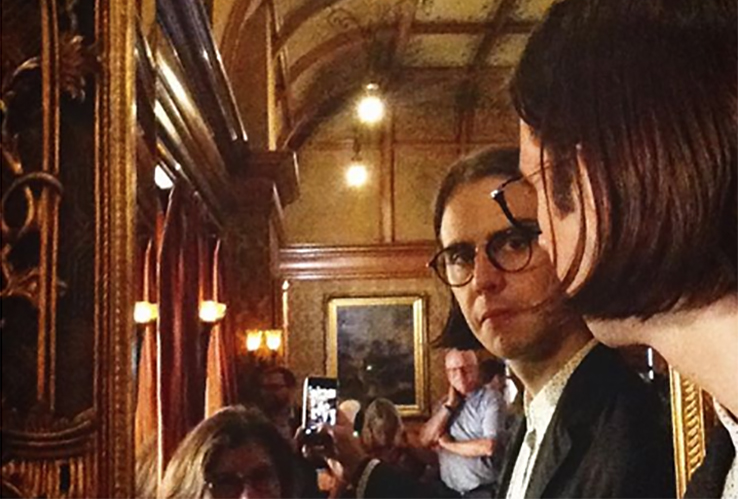after Aszure Barton’s Lift at Alvin Ailey
I think it was something to do with labor—
the man, his body before me all muscle, skin like a contract holding him there,
lines pulled tight
and his joints at odd angles, body
capable, legs not unlike those folding to fit in their seats,
but visible
after the curtain has parted: cable, winch that pulls it through the pulleys,
then
his knees, his body at work,
part
of a sum
(a company): men, together—their bodies
in labor together,
for whom the audience puts their hands together
because that labor a work.
And then a part
of the women dancing
is shining thighs, their labor
evident in shining, the hands together again because
their movement a contract,
a kind of credit
that cannot be taken away, but only ignored,
and when they join the men, light on one man, the body of labor made center,
his sweat
in the stage lights,
glimmering
byproduct of the work he is paid to perfect and perform not for himself
but for me—I watch with my friend
whose compounding interest
and asset accrual allow us to be here—
the ushers, house lights, renovated ceilings, heat lamps in fog along 55th Street in the rain,
the hundreds of animals joining in dozens of fur coats damp with it,
almost like money (the fruit . . .
You grow.
You eat.
The thing with which you pay your debts or save . . .
of her labor added to theirs, the whole audience), sum
and accrual
flexing not unlike
the muscles their nerves arrange toward a work
exceeding the sum of their bodies in front of my skin,
a currency,
breathing a story—the labor of bodies other than mine—when a woman puts her face
in the pit of a man’s chest,
when his spine curves back to receive her,
is it labor,
or pleasure, or both—the sweat on his back—I feel—his breath
a product like smoke, a kind of evidence, proof
of a kind
of labor
not unlike love
and my purchase of it,
a clenching of muscle not unlike the lock of the winch releasing,
and she, midair,
allowing a break in the contract, a hole in the terms, a kind of evidence
of faith,
as if a bend at her waist, suspended,
into my ear, trust
extended
and my receipt.
Wrong with neglect.
The proof leaning forward. I do: I
can almost see—








